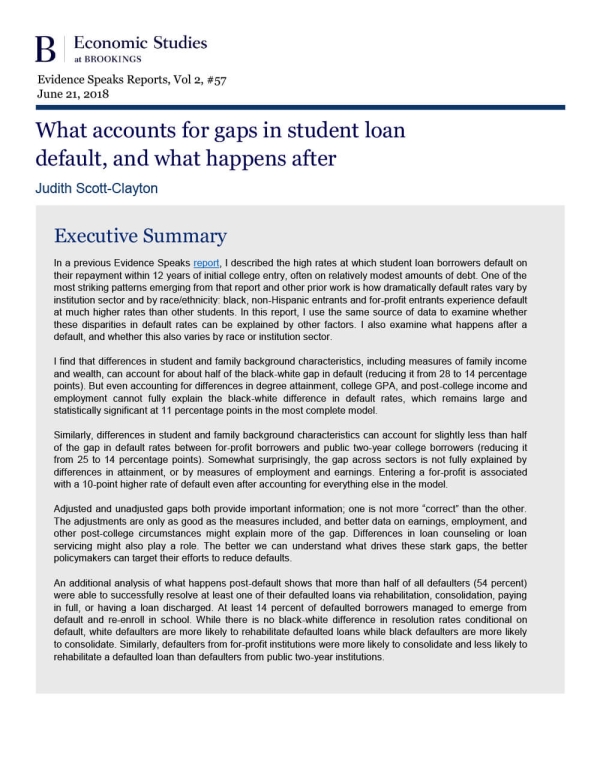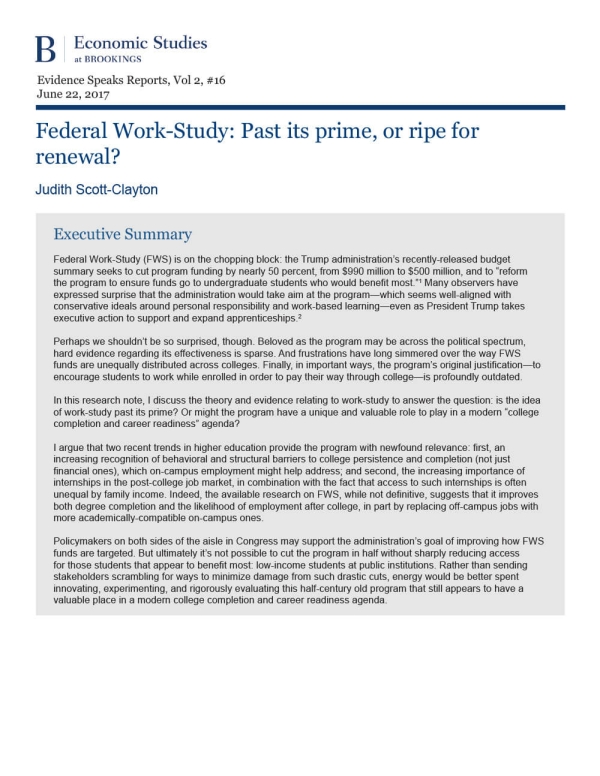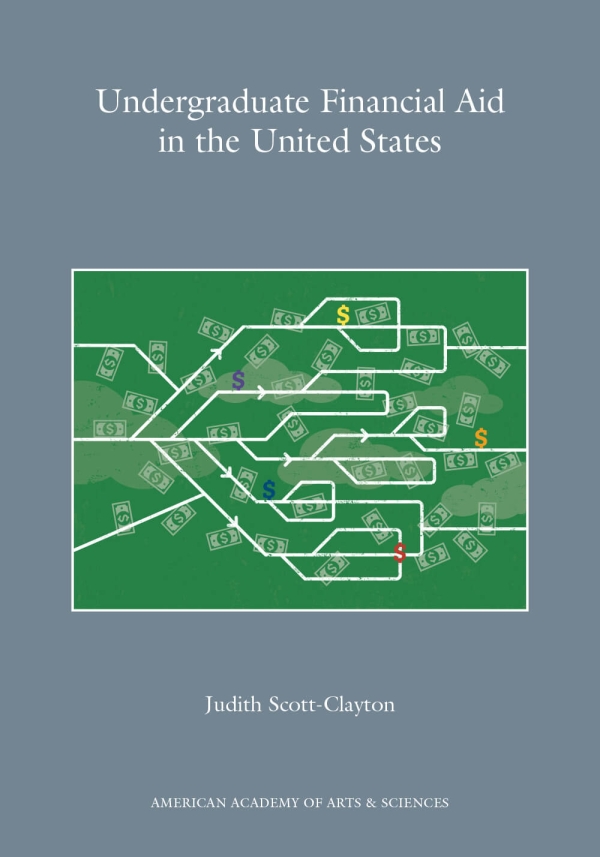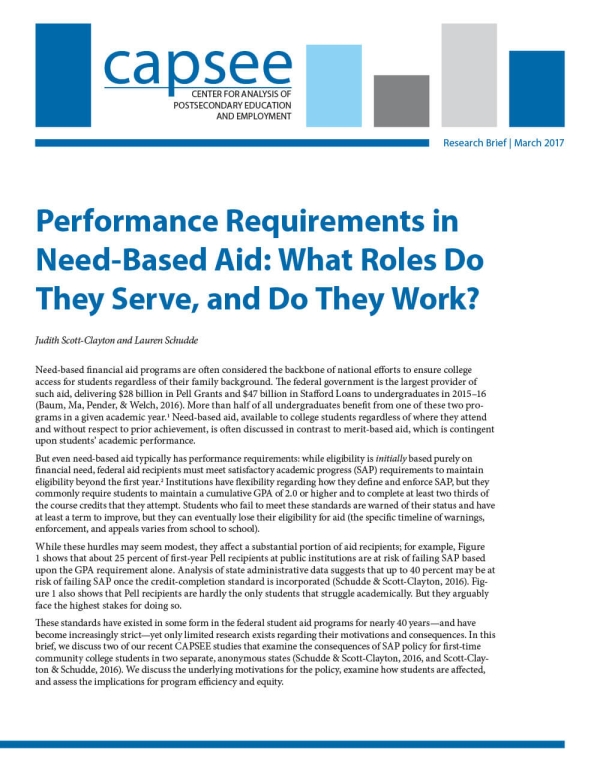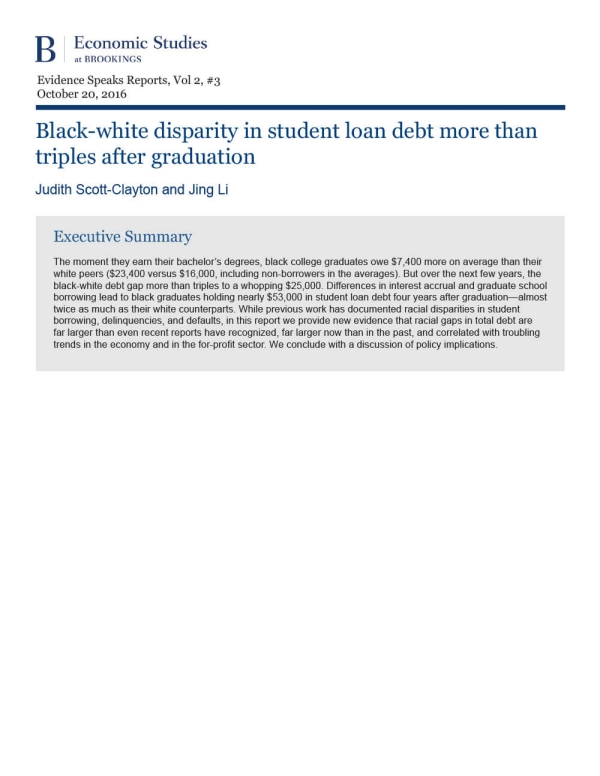June 2018
This Brookings Institution report uses data from the U.S. Department of Education to examine whether disparities in student loan default rates by race/ethnicity and institution sector can be explained by other factors, along with what happens after a default and whether this also varies across student subgroups.

